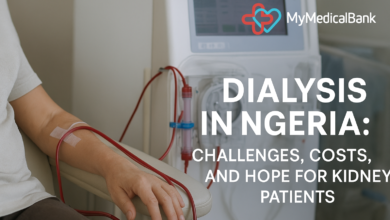5 Benefits Of Personal Health Records (PHR)?

Table of Contents
Patients can securely keep and manage their health information using Personal Health Records (PHRs), which can be either digital or paper-based records. By keeping an extensive record of their medical history, Personal Health Records are a crucial tool for people who want to take charge of their health. We’ll talk about the advantages of Personal Heath Records and how they can help people have better health outcomes in this blog article.
5 websites with visa sponsorship jobs for caregivers
1. Personal Health Records helps Improve care coordination
Personal Health Record give patients a detailed record of their medical history, enabling improved care coordination. Healthcare professionals can use this information to help them make better decisions and coordinate patient care. Healthcare providers can quickly view a patient’s medical history, drug allergies, and other relevant information with access to their Personal Health Records.
2. Personal Health Records helps Increased Patient Involvement
By enabling patients to actively participate in their care, Personal Health Records enable people to take charge of their health. Via the Personal Health Record, patients may examine their health data, monitor their progress, and get in touch with their doctor. As people become more involved in their care, this increased patient involvement may result in better health outcomes.
3. Personal Health Records helps To Avoid Medical Mistakes
By giving healthcare practitioners accurate and current information, Personal Health Records can prevent medical errors. Healthcare professionals who have access to a patient’s PHR can prevent duplicate testing, prescription mistakes, and other typical medical errors that might happen as a result of inadequate or erroneous medical data.
Disadvantages Of Personal Health Records
Personal Health Records (PHRs) have a number of advantages, but there may also be some drawbacks. They consist of:
Privacy Issues
The possibility of privacy violations with PHRs is one of the key worries. PHRs hold private health information that, if improperly protected, could be accessed by unauthorized people. There is always a chance of data breaches, even though many PHR providers use encryption and other security measures to safeguard patient data.
Access to Technology Is Restricted
PHRs are frequently accessed online through a portal, which calls for a computer or mobile device. It could be challenging for people to use a PHR if they do not have access to technology or do not feel comfortable using digital tools.
Information that is lacking or incorrect
While PHRs can offer a thorough record of a person’s medical history, the data may not always be accurate or complete. Patients are in charge of entering and updating their medical information, which can be difficult for some people.
Cost
Some PHR service providers have a cost for their offerings, which could be a deterrent for those who cannot afford it. The cost of using a PHR may also not be covered by all insurance companies, making it expensive for some patients.
Tech Problems
When employing PHRs, technical problems like connectivity issues or system faults can happen. Patients may become frustrated and unable to use the PHR properly as a result of these problems.
Personal health records are a useful tool for people who want to take charge of their health, to sum up. PHRs can enhance care coordination, patient engagement, and chronic illness management by providing a thorough and accurate record of a patient’s medical history. PHRs can also enhance data management and lower medical errors, which makes it simpler for people to keep track of their health and connect with their healthcare providers.
Be The First To Know About The Launch Of Our PHR APP Sign Up Here




One Comment